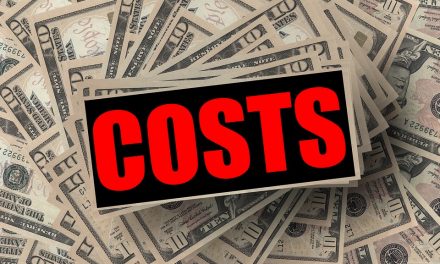Image by Linus Schütz from Pixabay
So you’ve been faithfully trying the Powerball lottery, and finally struck gold.
Congratulations! The odds seemed to be an impossible dream for you to win a mega drawing.
Assuming you did. Now what?
There are financial precautions you should take. Yep, be smart about it. Unless you plan carefully, your mega windfall will result in a nightmare.
Tips include:
1. Beware of scams
Scammers have been known to contact lottery winners to steal their winnings. Note: Winners are never contacted by the lottery via text, e-mail or phone.
Winners should not reveal bank or other confidential information nor pay any fees or so-called taxes.
2. Make photo copies of the lottery ticket
Give copies to trusted lawyers or accountants, but lock the original in a bank deposit box or personal safe at home.
3. Stay anonymous until certain precautions are taken
Don’t tell anyone about winning a lottery. Change your contact information including your phone number and go to you post office to rent a P.O. box because lotteries often require winners to give media interviews.
Your winnings can stay anonymous if you form a blind trust through attorney attorney.
4. Deliberate in your decision-making
Before you sign the winning ticket, read the game’s rules and contract.
Make a list of your priorities about using the money, and get financial experts to help you, if you’re not particularly savvy about investing and saving.
Resolve to be analytical in how you handle your winnings. Don’t become an ATM for your friends and family members. There’s a lot to think about. So make a plan.
5. Don’t forget about income taxes
Multimillion dollars in winnings, means you two things. 1. You’ll have to pay taxes. 2. You’ll be in the highest federal tax bracket – 39.6 percent.
Not only that, unless you’re in a state like Washington where there are no income taxes you’ll be hit with a state income tax bill.
Worse, if you buy your ticket outside your home state, you’ll be hit with taxes for both states.
6. Taking a lump sum
Decide what’s best – taking a lump sum or a payment over 20 years. For many people, it’s best to take the money in a lump sum. This will mean your money will earn more interest.
Be aware you’ll have to pay a significant amount in taxes upfront.
However, if you invest wisely you’ll have more money in 20 years than if you accept 20 annual installments.
“We’ve all heard stories of lottery winners, rock stars, heirs and heiresses, and professional athletes becoming millionaire morons who wake up rich but are broke by nightfall.”
-Robert Kiyosaki
7. Go for installments, if you plan to spend the money right away
It’s true, you’ll be better off in the long run if you take the amount in-full. However, if you have plans to spend the money, go the installment route.
But spread it out over the years.
8. Suppose you die unexpectedly, know what happens
If you die, the winnings can be passed to your spouse without being taxed. However, if you’re unmarried and depending where you live, your heirs will face estate taxes probably for more than 40 percent.
Good luck!
From the Coach’s Corner, more advice on finance:
Before You Travel Abroad, Take 6 Financial Precautions Today — Whether you’re traveling to a foreign country for business or pleasure — there are at least six steps you should take. You need to do more than just making sure that your passport is current, planning your itinerary or deciding what to pack.
Protect Your Bank Accounts So You Can Sleep at Night — Imagine for a moment — you’re sitting at your desk enjoying a second cup of morning coffee. Then, your phone rings. It’s a call from your bank to discuss possible fraud. Your bank is concerned about possible suspicious activity with your accounts, and wants to make sure you’re not a victim.
9 Secrets for Success in Real Estate Investing — Whether you want to work with investor partners or go solo, real estate investing can be a profitable business. By performing due diligence, developing a system and working hard, real estate investing works.
Tax Deductions for Small-Residential Property Landlords — As investments go, small residential property landlords enjoy the most tax benefits. In a down year, rental property tax deductions can make a big difference whether you enjoy profits or suffer losses.
Financial Tips for Taking the Plunge to Buy a Business — So you’ve decided to take the plunge in buying a business. Congratulations. I salute such bravery. Owning a business represents one of America’s great fundamentals — our free-enterprise system. You’ll have multiple financing options.
“My wife said to me: ‘If you won the lottery, would you still love me?’ I said: ‘Of course I would. I’d miss you, but I’d still love you.’”
-Frank Carson
_________







